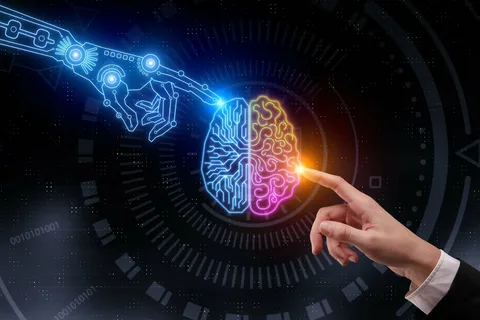Integrating human knowledge into artificial intelligence (AI) models has the potential to significantly enhance their efficiency and inference capabilities. A recent study published in the Nexus journal on March 8 presents a novel framework that evaluates the relative significance of rules and data in trained machine learning models. By striking a balance between these factors, researchers were able to equip AI with fundamental laws of the physical world, leading to improved problem-solving abilities in complex scientific scenarios, such as mathematical problem-solving and optimizing experimental conditions in chemistry.
Hao Xu, the first author of the study from Peking University, emphasizes the importance of finding a suitable equilibrium between human knowledge and training data to enhance the predictive capacity of deep learning models. While generative AI models rely solely on data-driven approaches, the incorporation of human-derived rules can significantly broaden their scope and applicability, particularly in scientific and engineering domains. Collaborating with senior author Yuntian Chen from the Eastern Institute of Technology, Ningbo, the research team focused on infusing physics laws into AI models to enhance their real-world applicability.
Unlike conventional data-centric AI models, informed machine learning incorporates predefined rules to guide the training process, enabling more accurate predictions. The researchers developed a comprehensive framework to assess the impacts of individual rules on model accuracy and optimized the model by adjusting the relative importance of these rules. By identifying synergies and dependencies among different rules, the team successfully enhanced model performance and efficiency.
The practical applications of this framework extend to various fields, including engineering, physics, and chemistry. The team successfully applied their method to optimize machine learning models for solving multivariate equations and predicting outcomes in chemistry experiments. Future endeavors involve developing this framework into a user-friendly tool for AI developers and training models to extract knowledge autonomously from data, thus enhancing their self-improvement capabilities.
In their quest to transform AI into autonomous scientific entities, the researchers aim to create a closed-loop system where models can extract knowledge from data and use it to enhance their problem-solving abilities. By bridging the gap between training data and human-derived knowledge, AI systems can evolve into sophisticated scientific tools with broad-ranging applications.
*Note:
1. Source: Coherent Market Insights, Public sources, Desk research
2. We have leveraged AI tools to mine information and compile it




